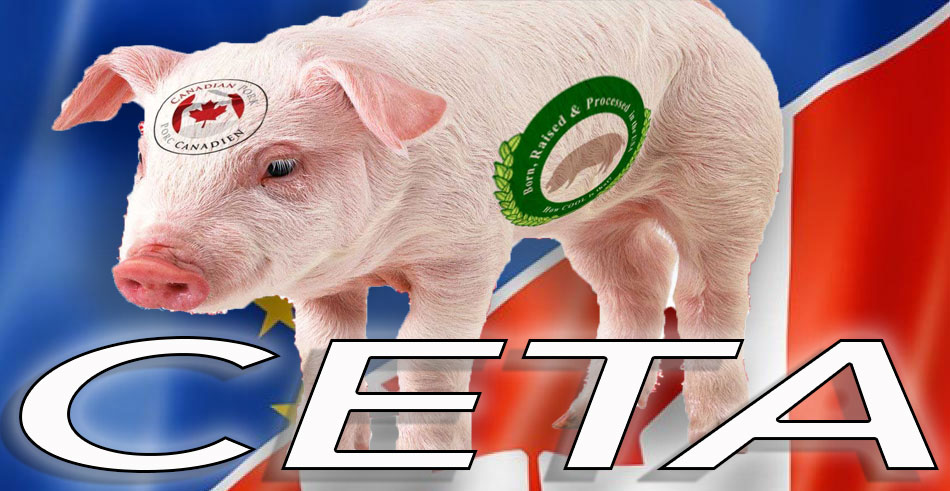Canadian Meat Industry Notes Entry into Force of CETA: Still Awaiting Resolution of Critical Technical Barriers

While still awaiting the resolution of critical technical barriers, Canada’s meat packing and processing industry notes the provisional entry into force, effective September 21, 2017, of the Canada-European Union Comprehensive Economic and Trade Agreement (CETA)
Provided the remaining technical constraints are addressed successfully, the CETA offers the potential of significant future exports of Canadian meat products to the European Union.
“The Canadian meat industry has consistently supported a CETA that allows for trade in meat products consistent with the potential that was envisaged by the negotiators and approved by the Canadian and EU legislatures. However, commercially viable access will be fully realized only when the associated technical negotiations have been concluded successfully,” said Canadian Meat Council President and CEO Chris White.
The timely resolution of two technical barriers are particularly important to enabling full implementation of the CETA. One provision pertains to the location at which the EU health mark label is applied to boxes of meat. Currently, the Canadian Food Inspection Agency (CFIA) requires the application of the EU health mark label to the boxes before they become eligible for export to the EU. The industry believes this administrative inconsistency should be immediately resolvable by Canada’s regulatory authorities.
“We ask that the Canadian and EU governments commit to the resolution of all outstanding technical barriers”
The second provision pertains to EU procedures for the approval of antimicrobial interventions used in Canada to enhance food safety. The Canadian meat industry and the Canadian government are at present collaborating on supplemental research to reinforce the existing food safety and antimicrobial efficacy data that have been accepted by food safety authorities in Canada, the United States, Japan and numerous other countries. The industry expectation is that, once the supplemental research has been completed, these antimicrobial interventions will receive timely approval by the EU regulatory authorities.
“The industry appreciates the continuing endeavours of Canadian officials to ensure a commercially viable outcome for the Canadian livestock and meat sector. We ask that the Canadian and EU governments commit to the resolution of all outstanding technical barriers that prevent the provisions of the CETA from being implemented as envisaged by the negotiators,” said Canadian Meat Council President and CEO Chris White. “While the industry recognizes that certain barriers may require additional work, others should be resolvable quickly,” added White.
Provided the remaining technical barriers can be overcome, the CETA will permit: duty-free exports of 80,549 tonnes of Canadian pork; duty-free exports of 64,950 tonnes of Canadian beef and veal; duty-free exports of 3,000 tonnes of Canadian bison meat; unlimited duty-free exports of Canadian horsemeat; and, unlimited duty-free exports of Canadian prepared meats. While it is anticipated that some niche exports of Canadian beef and pork to the EU will occur in the meantime, it is not expected that the CETA will reach the potential that was envisaged by Canadians until the associated technical requirements become commercially viable.
Conversely, immediately upon entry into force of the CETA, the EU will: retain unlimited duty-free access to the Canadian market for pork; obtain unlimited duty-free access for beef and veal; and, receive unlimited duty-free access for prepared meats.
Canada’s meat processing industry includes 400 federally inspected establishments that not only provide safe, high quality protein for consumers, but also add jobs and contribute significantly to local economies in both rural and urban Canada. With annual sales of $28 billion, exports of $6.1 billion, and 66,000 jobs, the Canadian meat industry is the largest component of this country’s food processing sector.
The Canadian Meat Council has been representing Canada’s federally inspected meat processing industry since 1919.












